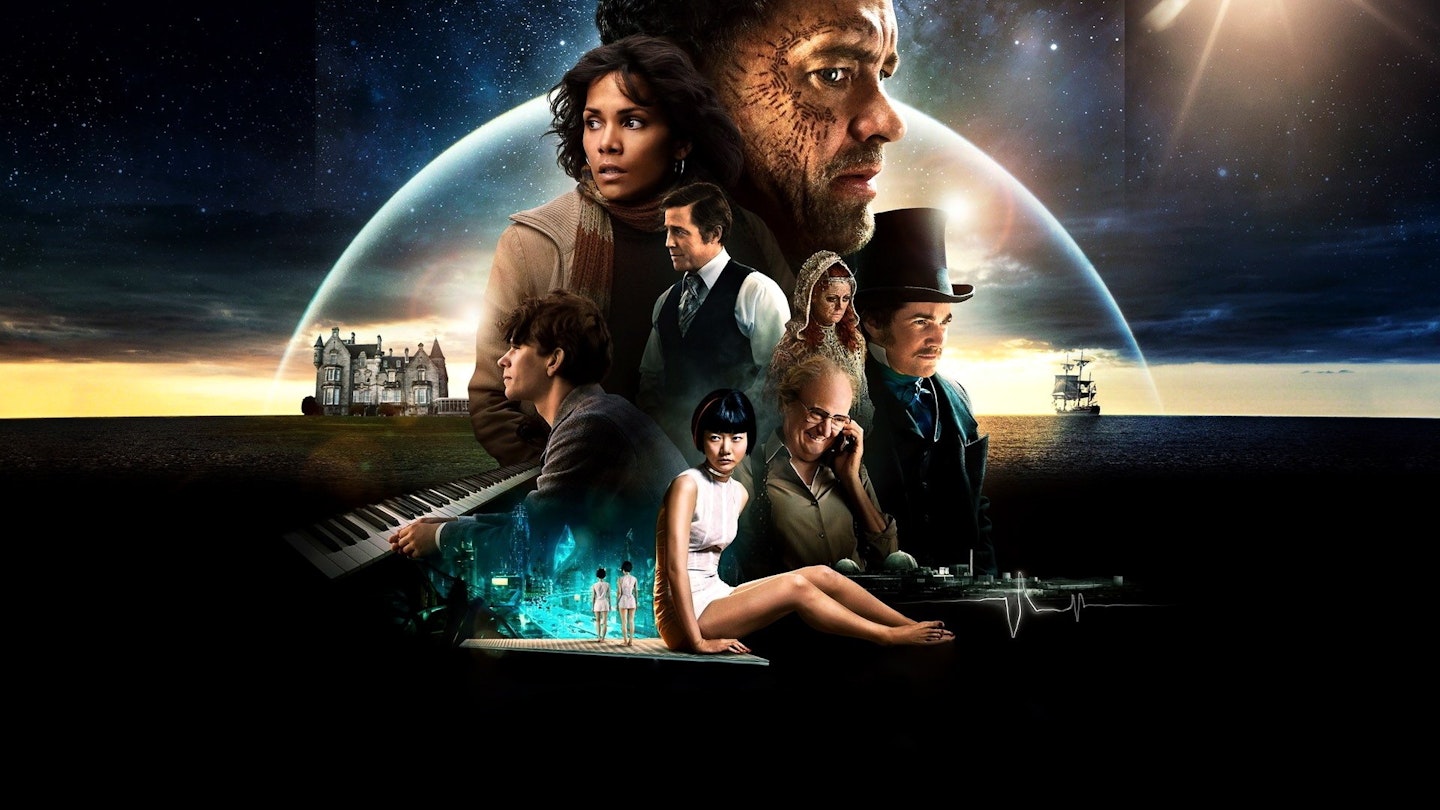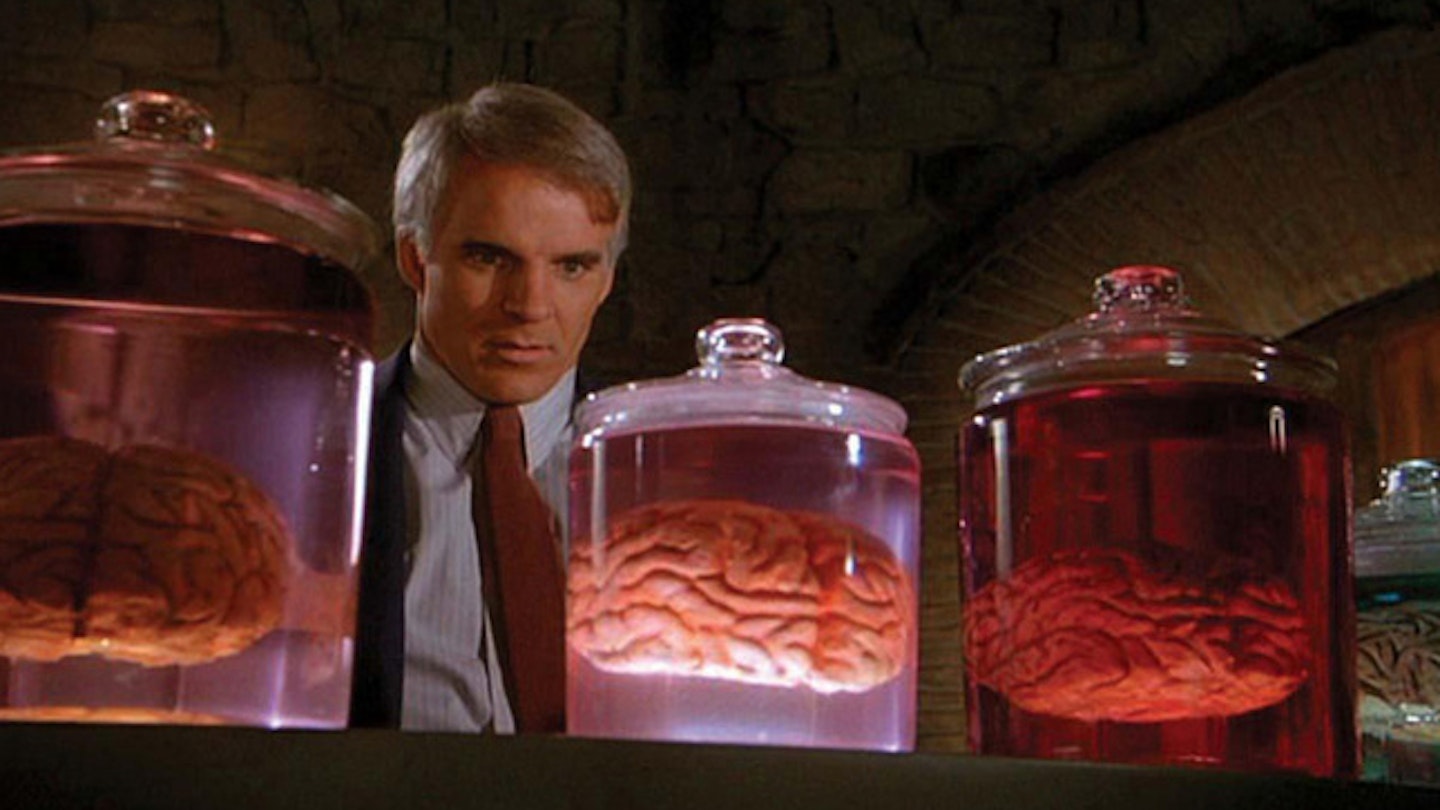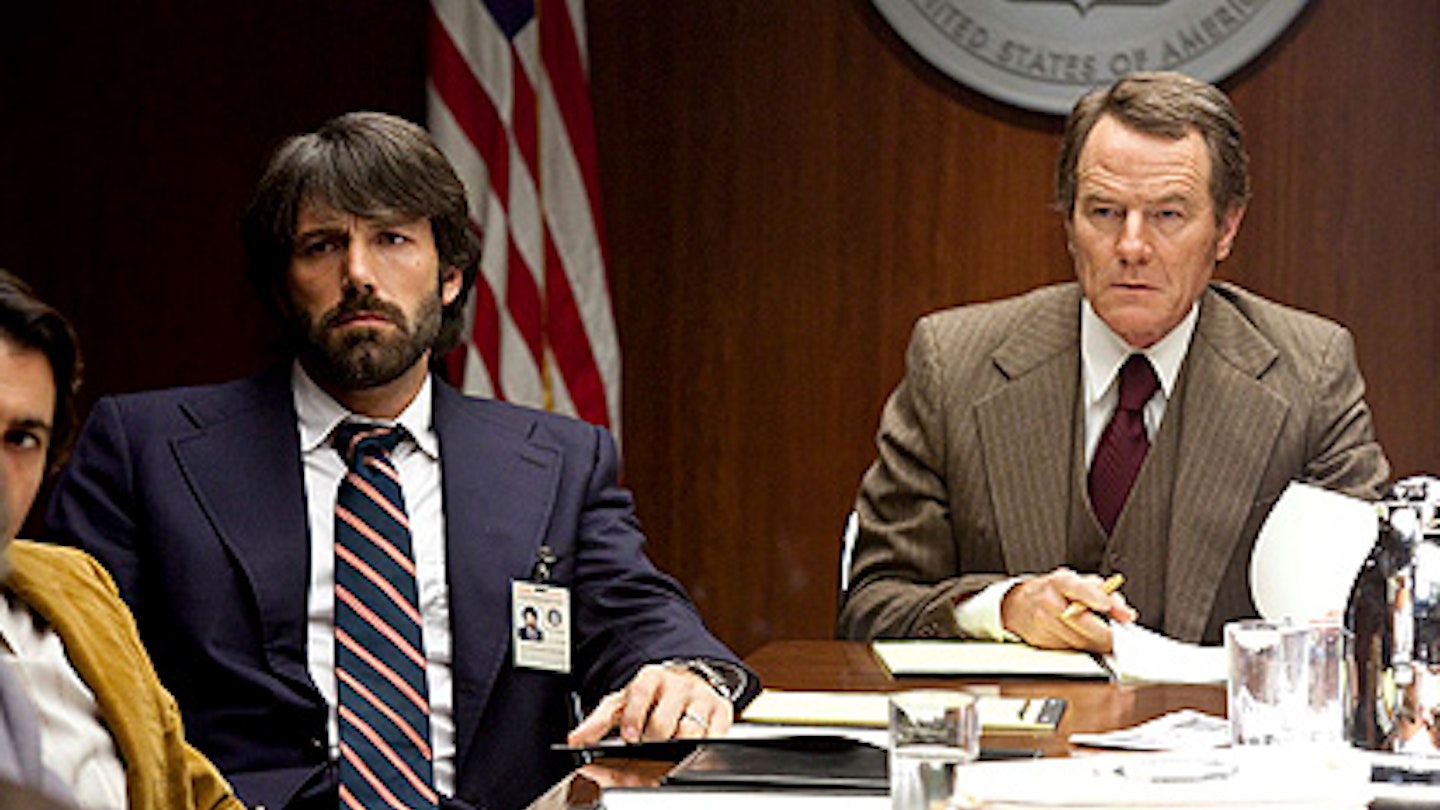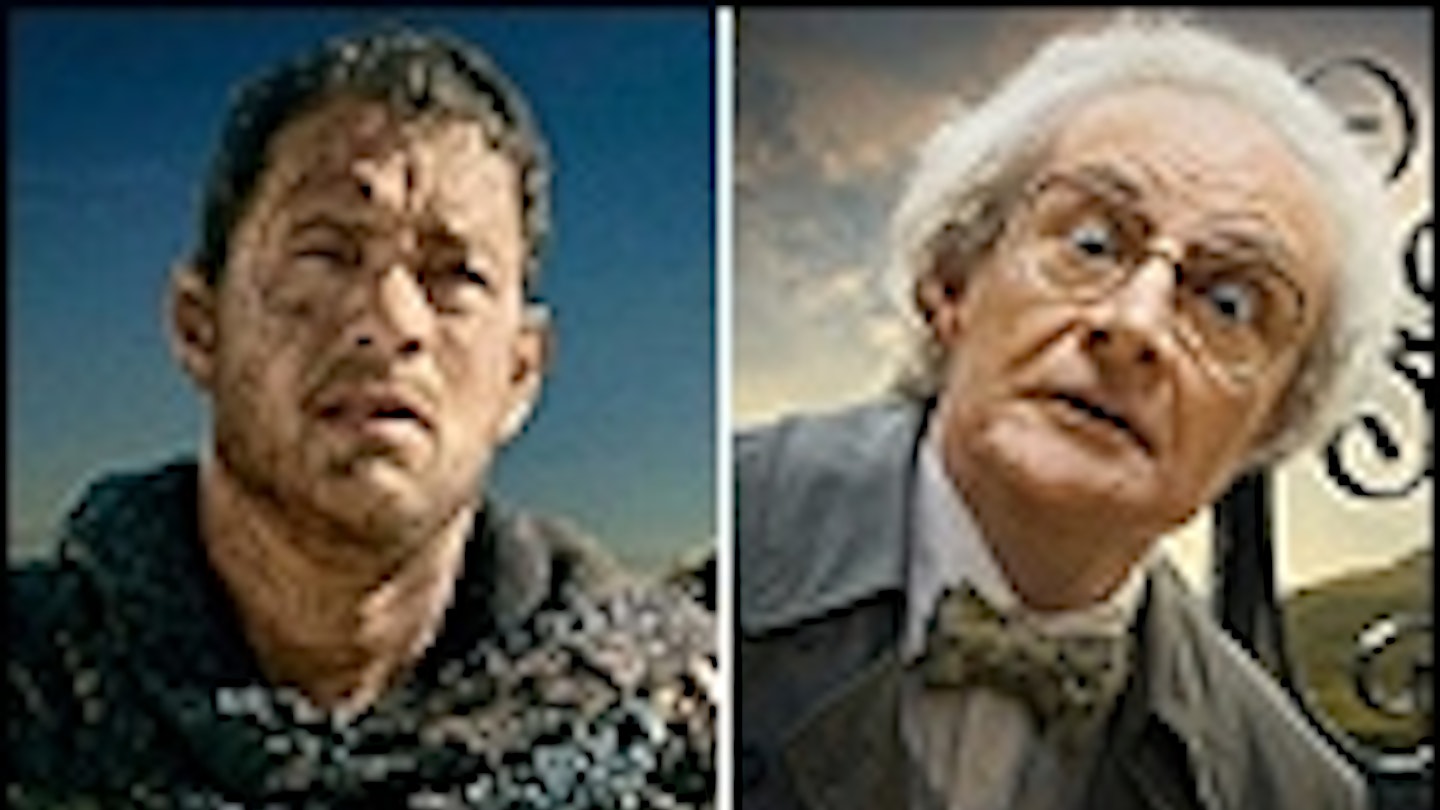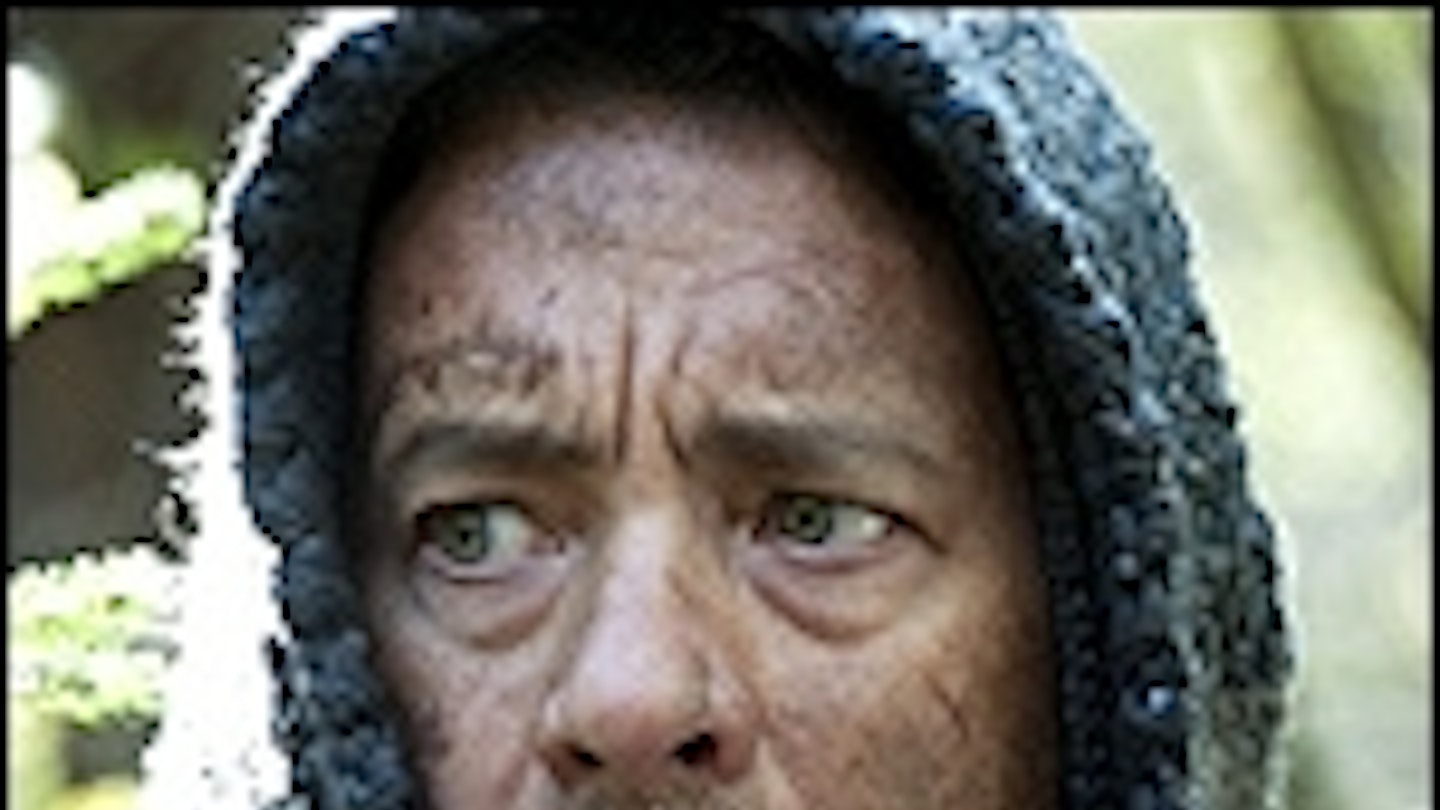As with most things that pique the interest of the philosopher-geek Wachowksi siblings — on this occasion enrolling compeer Tom Tykwer into their wizard schemes — David Mitchell’s time and tale-traversing novel presented another chance to dally over vaulting matters of life, the universe and everything. Mitchell’s tapestry of six stories contends with the cycles of time, the eternal bust-up between fortune and predestination, and our lonely quest for higher meaning. How mankind is cursed and blessed to repeat himself. And how he makes sense of his capacity for both great good and hideous evil by transforming them into stories and myths; religions and science; songs, novels and movies too. Here also was the chance for Wachowski, Wachowski and Tykwer (who sound as if they are as likely to file a tax return as direct a movie) to spread their creative wings and swoop from the benighted city-state of Neo-Seoul populated by slave clones (forms of slavery persist across storylines), back to a Joseph Conrad-flavoured, 19th century sea-faring tale adrift in the boundless Pacific (oceans and islands are significant), concerning a treacherous ship’s physician with a thing for collecting teeth (baring their own tales of former owners).
Mitchell’s literary remix devised an ingenious Russian-doll structure, moving forward in time through the beginnings of the first five stories of his pyramidal saga, before the sixth, most temporally distant episode played in full, then reversing outwards, completing each story in turn to end exactly where it began. That’s the book. Fearful such a framework might make their adaption feel too much like a portmanteau movie (a set of short films housed under one roof), even if that is exactly how Inception works, the directors take a more cinematically conventional, if technically challenging, approach by crosscutting back and forth between time and place, story and story, guided by an underlying thematic and associative blueprint. You could opt to simply relax and see what comes of letting the waterfall of stories wash over you. Yet, the cryptic layering of it all urges you to open your eyes, ears and dusty lobes to decipher what the Hydra-headed film might be getting at.
There is little doubting the glorious ambition of the project, both as an epic tableau and in terms of its filmmaking engineering. In an age of relentless safety, its cocktail of human foible and movie madness is intoxicating. Even at nigh on three hours, it never drags.
Most daring of the directors’ narrative chicanery is to embody the concept of recurring souls (or a genetic strain) by having the same actors play different parts in different stories. The cast rises to the crazed multiplicity of it all with aplomb. Tom Hanks, marked out by a cornucopia of conks, variously assays that wicked ship’s doctor (stage one), a brute Irish gangster-turned-memoirist (stage four), a sullen landlord in ’30s Edinburgh (stage two), and a cowardly tribesman, mottled in tattoos, in a far-off scorched Earth, whose face greets us as the chronicle begins (stage six). “I’ll tell you the true true...” he warbles in Mad Maxish pigeon-speak, a peculiar man telling tales by an open fire like an aged Homer with its wink to the oral tradition. A good ‘for instance’ of the many drawstrings that pull Cloud Atlas into shape is this referencing of different modes of communication: body art, folktales, music, letters, journalism, fiction, television, the push and pull of interrogation, the dating of incisors. Investigative reporter Luisa Rey (Halle Berry), cottoning on to a cover-up at a local power plant (stage three), is transformed into one of the ‘Luisa Rey’ detective novels by stage four.
You’ll be reading until kingdom come if we supply all the actors and all their parts — and one of the movie’s pleasures is clocking where each materialises, like a game of Where’s Halle?. A hint: amongst her more elusive occurrences, Berry turns up as a Jewish mistress and a Korean man. Another hint: there are through-lines for each actor, where each of their characters echoes a sense of the others. Hugo Weaving, be it as a fusty matron (stage four) or Satanic apparition (stage six), always possesses a menacing aspect not so distant from Agent Smith.
Beyond the book’s intricacies, Cloud Atlas, the film, ponders the architecture of filmmaking. Making connections across time and space is pretty much how films are assembled, and the editing here proves a virtuoso display of overlapping storylines, interweaved via character, theme, image, music and plot. Though subdivided into six parts, the overall film retains a distinctive arc: six starts, six middles and six conclusions. All intermingled. It is, indeed, a symphony, as emphasised by stage two, where Ben Whishaw’s itinerant amanuensis composes the ‘Cloud Atlas Sextet’. A recording of which turns up on vinyl in a San Francisco record shop early in stage three.
Yes, there are flaws — the exuberant sprawl of it all almost welcomes them. Just keeping up can wear you out. Patience is called for. In the book, the pastiche of narrative styles is readily established and cleverly divided, a charm dispelled by the film’s more frenetic structure. This leads to violent lurches in tone. Alighting from the quasi-fantasy, island-set, post-apocalyptic future (stage six) upon the vulgar whimsy of British sitcoms in the contemporary ‘old-people’s home’ sequence (stage four) — in which Jim Broadbent’s geriatric publisher plots escape as if absconding from a POW camp — threatens whiplash. While the high-wire daring of having actors transgress racial lines more often loses its flirtation with taste.
Then, casting Hugh Grant (overarching theme: a rotter) as a rampaging future-world cannibal (stage six) as well as a sun-leathered nouveau riche slimeball (stage four), a deceitful power company exec (stage three), and a predatory Korean restaurant manager (stage five) is surely not to be taken too seriously. Maybe such shudders of taste and style should be applauded. If you’re trying to encompass the entire human story, there’s sure to be as much ridiculous as sublime.
